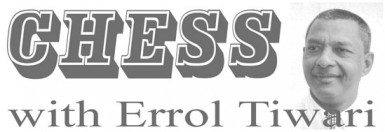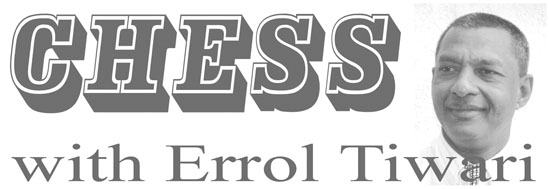Garry Kasparov has long been accustomed to hovering easily above his human opponents at a board game that he felt perhaps, was designed for him. Hardly did he play an egregiously bad move in the hundreds of chess games which he contested. Having conquered all, and lifted the holy grail of chess ‒ the world championship title ‒ and defended it a number of times, Kasparov retired from the ancient game in 2005. But he did not retire into obscurity. Kasparov set himself surmountable tasks and aired his views on matters which he believed to be necessary. He created the eminently successful Kasparov Foundation, where he is promoting chess in education; he became one of the more prominent opposition voices in his homeland of Russia, and is the current Chairman of the New York based Human Rights Foundation. The former world chess champion continues to be a man of many parts. For example, I listened as he was being interviewed by the BBC on television a few nights ago, and no questions were asked about his involvement in chess whatsoever! The interviewer sought answers to other current issues which are impacting on Kasparov’s life.
Now Kasparov is immersing himself in a mega-political challenge when he announced his candidacy for the presidency of FIDE, the World Chess Federation. He plans to unseat the 51-year-old incumbent Kirsan Ilyumzhinov, a past president of the Republic of Kalmykia, a rural republic on the Caspian sea. In 2010, another world champion, Anatoly Karpov, failed in his bid to depose Ilyumzhinov.
of FIDE, the World Chess Federation. He plans to unseat the 51-year-old incumbent Kirsan Ilyumzhinov, a past president of the Republic of Kalmykia, a rural republic on the Caspian sea. In 2010, another world champion, Anatoly Karpov, failed in his bid to depose Ilyumzhinov.
Ilyumzhinov has argued that he saved chess from bankruptcy when he assumed office in 1995, popularized the game, united the chess world and was instrumental in having chess recognized within the International Olympic Committee. “Those tasks were accomplished,’’ he said. “Now we only need to have chess at the Winter Olympics. Chess in Schools project is also developing. So, there’s still a lot of work to do, that’s why I agreed to nominate myself for one more term.’’
When Ilyumzhinov learnt of Kasparov’s immediate challenge for the presidency of FIDE, he made the following comment as outlined in the publication Chess News: “As regards to Kasparov’s nomination ‒ he is always much into PR. Once he wants to be Russia’s president, then he tries to be the leader of the opposition. It’s clear that now he needs FIDE president post for solving his own political tasks. It’s doubtful that chess players will support him. We have a different motto ‒ Gens una sumus (We are one people). Well in general, its pleasant for me to see the return of the prodigal son, it seems like my work for chess development for 18 years wasn’t done in vain.’’
In an interview with the Swiss newspaper Nasha Gazeta, Karpov was asked: Can Kasparov count on support in Russia? ‘’No, he can’t. Moreover, the Russian Chess Federation will work against him, this is obvious. When I was running for FIDE president against Ilyumzhinov, the Federation first voted for me. Russia supported me and then ‘changed’ the position of federation under wild pressure.’’
In many instances, the might of sports federations is not to be underestimated. Chess boasts 178 voting nations that belong to FIDE, the world Federation. Each vote is crucial. It is little wonder, therefore, that politics is of immense significance when choosing a president.
Kasparov’s programme for FIDE is being referred to as Six Winning Moves.
1. FIDE will be a transparent organization that serves and supports the national federations. There will be an increase in communication and information shared between FIDE and the federations in order to make the FIDE Secretariat more effective and responsive. There will be constancy in the bidding processes for FIDE events.
2. The national federations will prosper as FIDE prospers. FIDE should provide for its members instead of being supported by them.
Reduce membership fees by 50% immediately.
25% reduction per year of all other fees.
3. FIDE finances:
Increase the FIDE budget by 100% in the next two years via corporate sponsorship. Increase revenues through commercial sponsorship by reorganizing FIDE with a professional marketing approach that will make chess and the FIDE brand attractive to corporate and public sponsors.
4 . Universal rating system and expansion of online services: A universal rating system will include every game of chess played on the planet, from world championship matches to online blitz. It will serve as a portal that unites tens of millions of players and will become an attractive advertising and sponsorship asset.
FIDE must provide benefits to the huge base of chess players, not just serve the elite. It can do this by offering services to the federations such as online news and training, a social media platform, direct support for organizers and journalists, and assistance with fundraising and finding sponsorship.
5. Chess in education for children: Develop the next generation of chess players around the world by promoting and establishing chess-in-education programmes. Having chess be included in the school curriculum builds a strong foundation for the global development of our sport.
Create and encourages programmes and research on chess in education at every grade level and into adulthood. The many positive benefits of chess, especially for kids and seniors, should be documented and promoted.
The experience of the Kasparov Chess Foundation, which has raised millions of dollars for chess-in-education programmes worldwide, has demonstrated the enthusiasm for these programmes in both public and private institutions. This expertise will be at the service of FIDE and the international chess federation will take the lead in bringing chess into every classroom.
6. Review FIDE regulations to protect the integrity of chess: Collaborate with players and organizers on a common-sense implementation of the zero-tolerance rule that will preserve dignity and professionalism.
Take immediate steps to develop, test, and implement strong anti-cheating measures, including severe penalties for violators.
Adopt anti-short-draw rules to preserve the integrity of the game and to improve the image of chess as a sport worthy of greater media attention and commercial sponsorship.






